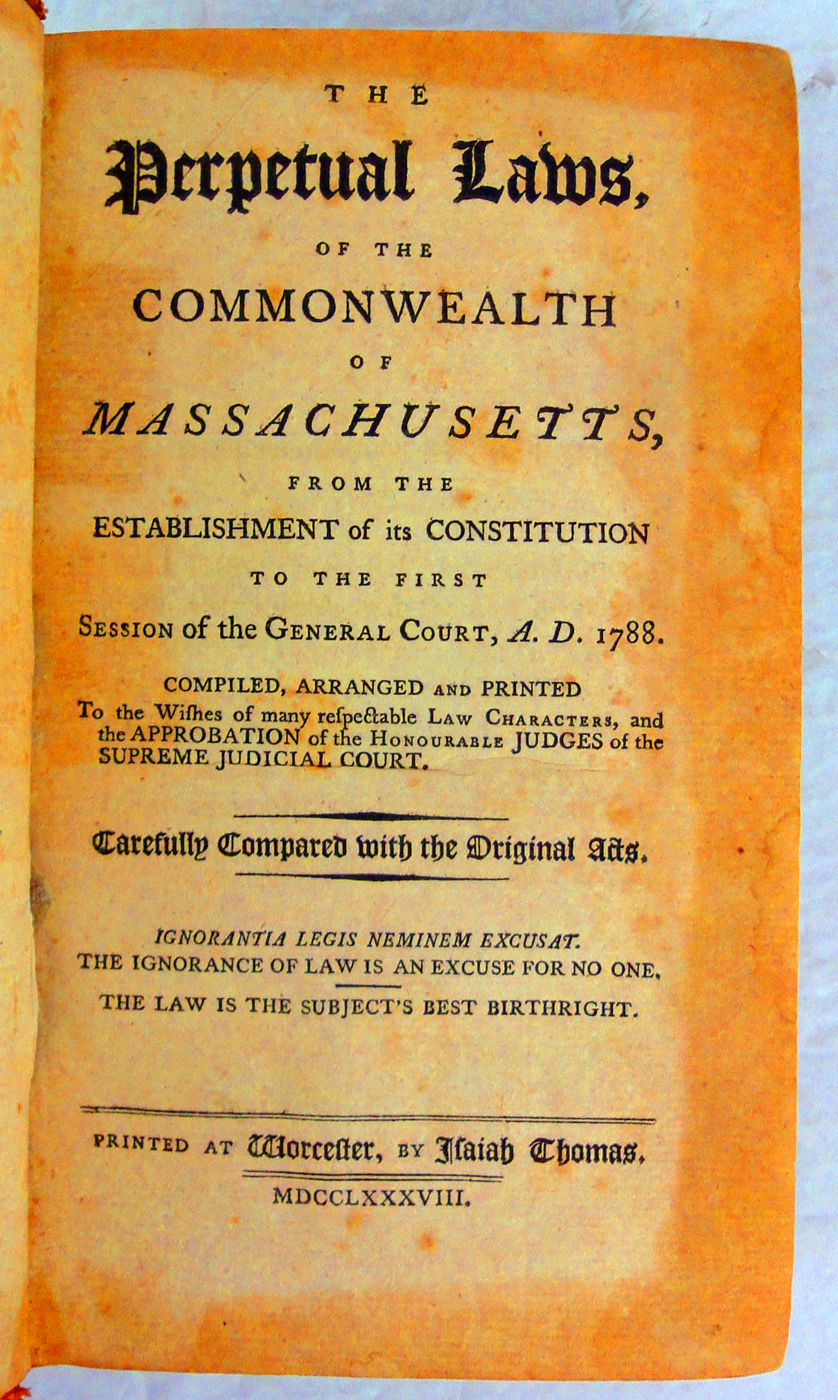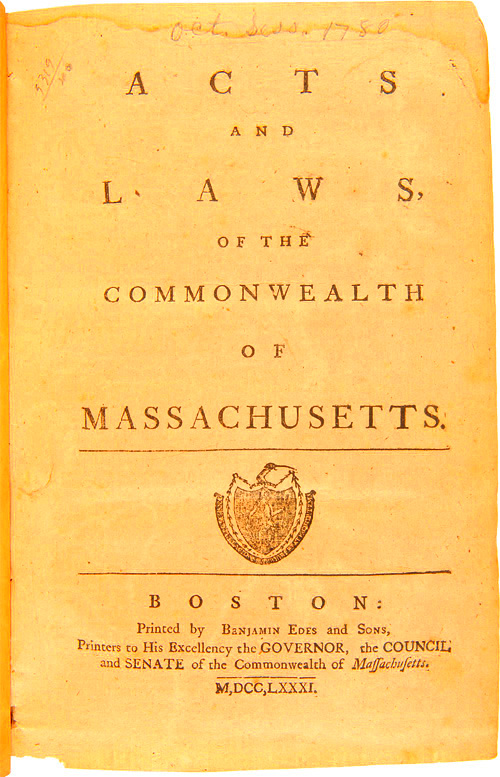An Overview of Massachusetts Common Law and Its Application
Common law is a vital part of the legal system in Massachusetts which evolves over time and is determined by judicial decisions instead of statutes exclusively. It is primarily based on precedent which means that earlier court decisions direct future rulings. In Massachusetts common law forms a basis for several important legal principles influencing laws’ interpretation and application.
One particular trait that amazes many people about common law is its ability to adapt. By taking into account the individual context of every situation, judges give way for an intricate form of justice when interpreting laws. This condition accommodates certain particularities and occurrences which might not be extensively covered by statutory laws.
Historical Background of Common Law

Common law is something whose origin can be traced to England during the Middle Ages and was based on the practices and customs of various localities. As Britain extended its empire, it took common law ideas to America, specifically in Massachusetts. A lot of English
Over the years, various landmark cases in Massachusetts have shaped its common law, reflecting the state’s evolving social norms and values. For instance, the famous case of Brown v. Board of Education illustrated the need for common law to adapt to changing views on civil rights.
Key Principles of Massachusetts Common Law
Massachusetts common law is defined by a number of important principles that determine the outcome of legal issues:
- Precedent: Decisions made in previous cases are authoritative in future cases. This principle, known as *stare decisis*, ensures consistency and predictability in the legal system.
- Judicial Interpretation: Judges play a crucial role in interpreting laws and applying them to specific cases. This interpretation can create new legal precedents that expand or clarify existing laws.
- Equity: Common law also incorporates equitable principles, allowing courts to provide remedies beyond monetary damages. This means that in some situations, a judge can issue injunctions or specific performance orders.
- Flexibility: Unlike rigid statutes, common law can adapt to new circumstances, allowing for a more tailored approach to justice.
Legal principles which are helpful in maintaining balance between the letter of law and pursuit for justice in Massachusetts so that the justice system can be able to respond accordingly.
Differences Between Common Law and Statutory Law
It is necessary to comprehend the dissimilarity between common law and statutory law for understanding the operation of legal systems in Massachusetts. Nevertheless, both kinds of legislation have crucial functions; however, they come from separate sources and perform different tasks.
Common law is developed through judicial decisions made in individual cases. It is shaped by judges’ interpretations and the precedents they establish. In contrast, statutory law consists of laws enacted by legislative bodies, such as the Massachusetts General Court. These laws are written, formal, and apply universally to all individuals within the jurisdiction.
Here are a few major dissimilarities between common law and legislation:
- Origin: Common law arises from court decisions, while statutory law comes from legislative processes.
- Flexibility: Common law is adaptable and evolves with societal changes, while statutory law remains fixed until amended by the legislature.
- Specificity: Statutory law tends to be more detailed and specific, while common law can be more general and subject to interpretation.
- Scope: Common law can fill gaps where statutory law may not exist, providing judges the authority to rule based on precedent.
As a result, by way of this comprehension people can well maneuver through legal environment in Massachusetts and determine how different laws can affect their rights as well as duties.
Applications of Common Law in Massachusetts Courts
Common law has a great influence on the courts in Massachusetts, which affects the way different types of cases are decided. To resolve cases ranging from contract disputes to personal injury claims, there is often a tendency for common law principles to be used.
The normal applications comprise:
- Tort Law: Common law governs tort actions, which involve civil wrongs that cause harm to individuals. Judges often rely on past decisions to determine liability and damages.
- Contract Law: Disputes over contract interpretation and enforcement often hinge on common law principles, allowing judges to apply precedent to guide their decisions.
- Property Law: Issues related to property rights, such as easements and adverse possession, are frequently resolved using common law rules established in previous cases.
In the provision of justice based on solid legal principles, common law enables the courts of Massachusetts to maintain uniformity and equity through the justice process.
Significant Cases Influencing Common Law
Many key court rulings have dealt with the massachusetts legal system, establishing vital exemplars that are still embraced by legal principles today. They frequently revolve around serious individual matters and exemplify the inherent flexibility of the common law to adjust itself to shifting social standards.
Cases of great import include:
| Case Name | Year | Summary |
|---|---|---|
| Brown v. Board of Education | 1954 | This landmark case established that racial segregation in public schools was unconstitutional, influencing civil rights law. |
| Wright v. Smith | 2000 | This case clarified the application of negligence standards in personal injury claims, influencing tort law significantly. |
| Commonwealth v. Blanding | 1862 | Addressed issues of property rights and the enforceability of contracts, setting important precedents in property law. |
These instances emphasize that judicial decisions in Massachusetts serve not just to settle particular conflicts but also to enhance the evolution of common law, thereby indicating the dynamic character of justice in a social context.
The Role of Precedent in Common Law
Precedents make the foundation of common law and they guide judges in Massachusetts, as well as other places. This means that all similar cases will be treated equally leading to fairness and stability in the legal system. When a ruling is made by a court it remains a precedent for other cases, and this influences on how the law should be interpreted or applied.
In the realm of common law, precedent functions this way:
- Stare Decisis: This Latin term means “to stand by things decided.” It emphasizes the importance of following established precedents, making the legal system predictable.
- Hierarchy of Courts: Precedents set by higher courts must be followed by lower courts. For instance, decisions made by the Massachusetts Supreme Judicial Court are binding on lower courts in the state.
- Overruling Precedent: Sometimes, a court may decide to overrule a previous decision if it believes that the law has changed or that the prior ruling was incorrect. This reflects the adaptability of common law.
Eventually, it ensures a consistent legal system where justice can be done in accordance with earlier decisions made by the courts.
Challenges and Criticisms of Common Law
Here are some of the main issues associated with common law which as a system has numerous advantages. Common law has undergone a lot of changes but some concerns have been raised over its relevance and efficiency in the contemporary legal context.
There are several standard problems and objections tied to the standard rule of law:
- Inconsistency: Since judges have discretion in interpreting laws, outcomes can vary significantly between cases, leading to perceptions of unfairness.
- Complexity: The reliance on precedents can make the legal system complex and difficult to navigate, especially for those without legal expertise.
- Slow Evolution: Common law can be slow to adapt to societal changes, sometimes lagging behind contemporary values and norms.
- Judicial Activism: Critics argue that judges sometimes overstep their boundaries by creating new law through judicial decisions rather than interpreting existing statutes.
The common law that is meant to be applied in these cases is surrounded by controversies including its status as a legal system among others.
Frequently Asked Questions
Clarifying some basic ideas and for those dealing with legal issues, that could initially appear to be much more confusing than they really are; below are some of the frequently raised questions.
- What is common law?
Common law refers to a system of law developed through court decisions rather than statutes. It relies on precedents established in previous cases. - How does precedent work?
Precedent involves following the rulings made in prior cases. Courts are generally bound to adhere to the decisions of higher courts within the same jurisdiction. - Can common law change over time?
Yes, common law can evolve as courts interpret laws in light of new societal norms and values. Precedents may be overturned or modified as a result. - What are some examples of common law?
Common law encompasses areas such as contract law, tort law, and property law, where judicial decisions have established important legal principles.
They’re on the right track. These FAQs are guides to understanding common law complexities in Massachusetts. Understanding these ideas will help people exercise their rights and fulfill their obligations.
Conclusion on Massachusetts Common Law
Common law is an important component of Massachusetts law, as it can be modified and molded. Through the rules of precedent, judicial interpretation and amalgamation of equity, common law guarantees thatjustice is dispensed even with the consistency and predictability of legal outcomes. Frequent criticism has been directed towards the inconsistencies and intricacies that accompany this legal system, thus leaving it to continue developing in line with changing norms within society.Most importantly, ordinary citizens working on their own problem must realize how complicated aspects of Massachusetts’ common law influence their rights and responsibilities. In summary, Massachusetts’ common law remains focal point in the efforts towards achieving fairness and equity by state officials.
